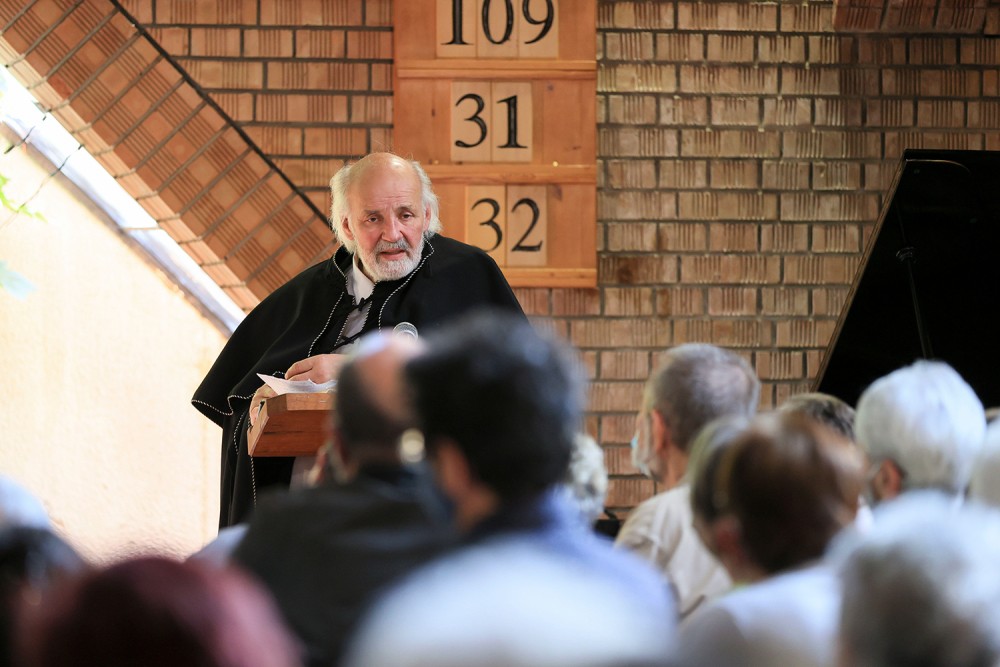The most dangerous preacher in Hungary
Methodist leader Gábor Iványi is perhaps Viktor Orbán’s fiercest critic. He’s looking to Americans for solidarity.

On Sundays, the most dangerous preacher in Hungary worships in a sleepy bedroom community in north Budapest. Gábor Iványi, leader of a small Hungarian Methodist denomination, speaks from a floor-level lectern at the House of Reconciliation, an unassuming A-frame sanctuary on a leafy cul de sac. On a damp morning last winter, I traveled 40 minutes from downtown to hear Iványi preach about a recent inflection point in his ongoing conflict with Hungary’s right-wing authoritarian government.
Iványi has led his Methodist denomination, the 20,000-member Hungarian Evangelical Fellowship (MET), since the 1970s. Membership remains low in the country’s various Methodist groups, founded as missionary churches in the 19th century. Yet Methodism is a stubborn presence in Hungary, especially after facing early opposition from official state churches. “Methodism was one of the early forces pushing for religious freedom in many European countries,” writes David Scott, director of mission theology at the United Methodist Church’s General Board of Global Ministries.
This history has come full circle, with Hungary’s Methodist MET struggling to worship freely, albeit now under a virulently Christian nationalist regime. In 2011 Viktor Orbán’s government passed a law reducing the number of officially recognized religious groups from 358 to 14. Overnight, the MET and hundreds of other groups lost their “registered” status and were no longer eligible to receive government funding for charitable work.





